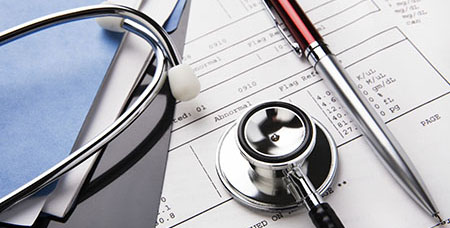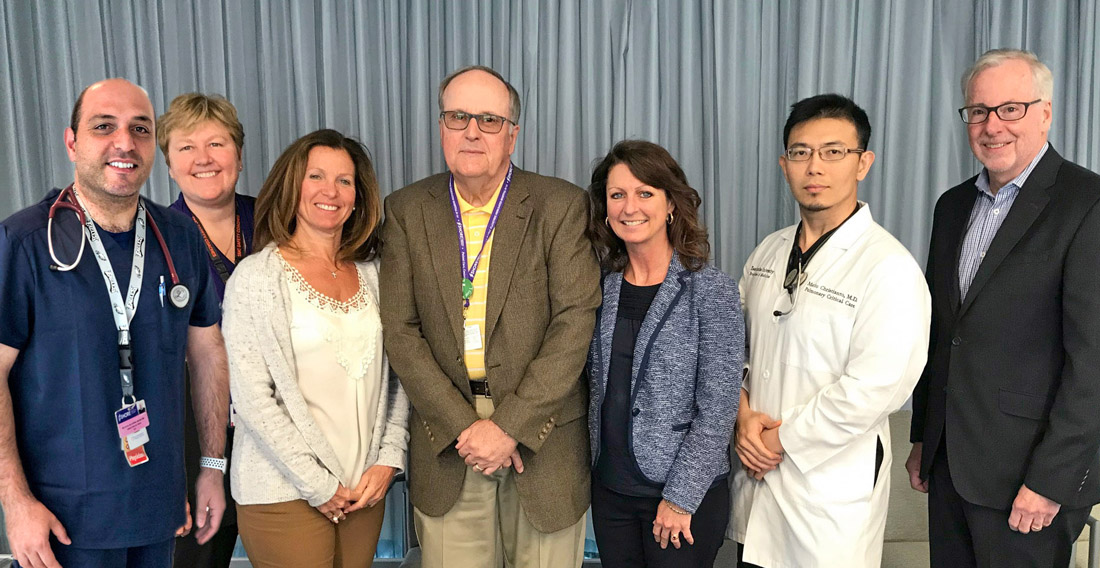Our Mission
Shore Medical Center is committed to providing high-quality health care services that are essential to the community we serve. Our mission is to care for and respect all patients, their families and each other and to that end, we pledge to provide you with the highest quality health care and to maintain a safe patient environment.
Our Goal
Shore’s goal for quality improvement and patient safety is to achieve excellence in clinical care as measured by established evidence-based, nationally endorsed clinical indicators and patient safety practices. We aim not to simply meet, but to exceed standards of care set by federal, state and local agencies.
- Patient Safety
Patient safety is the prevention of errors and adverse effects to patients that are associated with health care. Shore Medical Center has taken a proactive approach to patient safety by implementing teams led by front line staff and executives in an effort to design or re-design a patient-centered system that aims to improve quality of care and patient safety.
A Culture of Safety:
At Shore we have devoted ourselves to creating a Culture of Safety for our patients, their families, and our employees. An essential component of a successful patient safety organization is a strong safety culture. In a recent Accreditation Manual release by The Joint Commission they stated that “a safety culture operates effectively when the hospital fosters a cycle of trust, reporting, and improvement.” Shore has worked tirelessly to establish that trust which will make staff more likely to report patient safety events, and when these events are reported our hospital is able to use those reports to inform our improvement efforts.Our patients and their families:
Our organizations Patient Experience team works diligently to address any needs of patients who may have or have had an issue during their stay or that may be communicated after discharge. Should you have any concerns related to your stay or family members stay at our organization please call: 609-653-3500 and ask to speak with the patient experience team.Tips for Improving your Patient Experience:
- Always have an updated medication and conditions list available.
- Ask your health care professional when they walk in to your room to administer care if they have washed their hands.
- Ask questions if anything is not clear
- Be sure that all of the information on your ID bracelet is correct. If it falls off immediately ask your nurse for a new one.
- If family and friends are not feeling well ask that they not visit you or anyone in the hospital
- “Call don’t Fall!” Don’t feel that you’re a burden. Our staff is there to help you around the clock. If you need assistance moving around call your nurse for assistance in order to prevent a fall or injury.
- Measuring Quality
There are various Regulatory Agencies and organizations that monitor healthcare facilities on best practices, quality of patient care, and patient safety. Each agency measures quality and patient safety based on different criteria allowing them to gather metrics on categories like Hospital Acquired conditions.

The following are some examples of regulatory agencies and organizations that are monitoring healthcare facilities quality and patient safety:
- Centers for Medicare and Medicaid Services (CMS): a government agency responsible for overseeing the care and payment and quality given to patients who have healthcare benefits with Medicare or Medicaid. For more information on CMS go to: www.cms.gov
- The Joint Commission (TJC): TJC has developed and nationally implemented many sets of standardized core performance measures for hospitals. For more information on TJC go to: www.jointcommission.org
- The Leapfrog Group: Leapfrog incorporates a Hospital Survey for comparing hospitals performance on the national standards of safety, quality, and efficiency that are most relevant to consumers and purchasers of care. For more information on The Leapfrog group go to: www.leapfroggroup.org
- The Agency for Healthcare Research and Quality's (AHRQ): AHRQ’s works to produce evidence to make health care safer, mission is to produce evidence to make health care safer, higher quality, more accessible, equitable, and affordable, and to work within the U.S. Department of Health and Human Services and with other partners to make sure that the evidence is understood and used. For more information on AHRQ go to: www.ahrq.gov
- The National Healthcare Safety Network (NHSN): NHSN is the Centers for Disease Control (CDC) division that acts as the channel through which facilities comply with CMS infection reporting requirements. It enables healthcare facilities to collect and use data about their Healthcare Associated Infections (HAI) to develop and track improvement processes to prevent HAIs. For more information on NHSN go to: http://www.cdc.gov/nhsn/
The goal of measuring data is to provide these metrics on healthcare facilities to patients, their families, and healthcare professionals, so that they may be better informed when making decisions about their healthcare.
- Quality Initiatives
The quality of care that is provided to each patient is very important and that is why Shore Medical Center is committed to always delivering the highest quality of care to all of our patients. We are continuously working to improve current processes in order to reach that high level of quality care.
Shore continuously monitors the quality of care delivered by the healthcare professional at the hospital. Several Initiatives have been developed in order to decrease the number or preventable mistakes. Front line staff along with managers and executives are working on initiatives that help to ensure that each patient is getting the highest quality of care and safety.
Falls:
- Falls are one of the most common incidents that occur in a hospital setting and often lead to injuries. The goal is to make sure clinicians understand the risk of falls, identify which patients have the higher risk, and take steps to reduce the patients risk.
- Hourly Rounding: RN’s round hourly to make sure patients are ok and to assist with anything a patients may need.
- Falling Star program: If the patient is a fall risk they are given yellow socks, a yellow ID band, a yellow sign is placed above their bed, and a yellow falling star on their door in order to indicate that they are a fall risk.
- No Passing Zone: ALL personnel (non-clinical & clinical) must respond to a call light or bed/chair alarm when near a patient room.
- Educate the patient and their care givers about the risk of falling and to encourage them to call for assistance before getting out of bed
CAUTI:
- Our Catheter-Associated Urinary Tract Infection (CAUTI) initiative is only a small piece of our Infection Prevention mission.
- CAUTI’s are among the most common types of healthcare-associated infection, resulting in harm to patients, longer hospital stays, and added health care costs.
- SMC is working to prevent CAUTI’s by not applying urinary catheters in patients when they are not medically necessary and removing them as soon as possible.
Medication Errors:
- SMC is working hard to prevent medication errors by utilizing electronic scanning to scan a patients ID band and their medications prior to administration.
- The hospital has also instituted Computer Provider Order Entry(CPOE) which is used to cross check allergies and medications. CPOE ensures that a Pharmacists reviews all medication orders prior to administration of the drug. CPOE provides alerts like:
- Alert Drug-to-Drug Interaction
- Alert Drug-to-Drug Interaction
- Alert Drug-to-Allergy
- Alert for duplication of drugs
- Falls are one of the most common incidents that occur in a hospital setting and often lead to injuries. The goal is to make sure clinicians understand the risk of falls, identify which patients have the higher risk, and take steps to reduce the patients risk.
- Cancer Center Performance Reports
- Click Here to View Cancer Center Performance Reports
- Awards & Accreditations
Shore is accredited by the Joint Commission, and is certified by the Joint Commission for disease-specific care for stroke, spine surgery as well as knee & hip replacement. Shore also earned certification by the Joint Commission for Health Care Equity. Shore received the prestigious “A” grade from the Leapfrog Group, an independent evaluation of hospital quality and safety measures nationwide, for the Spring 2025 rating period. Shore also earned the “Recognized Leader in Caring for People Living with Diabetes” designation by the American Diabetes Association and Leapfrog in 2025. This national recognition program calls attention to the complex inpatient care required by patients living with diabetes.








